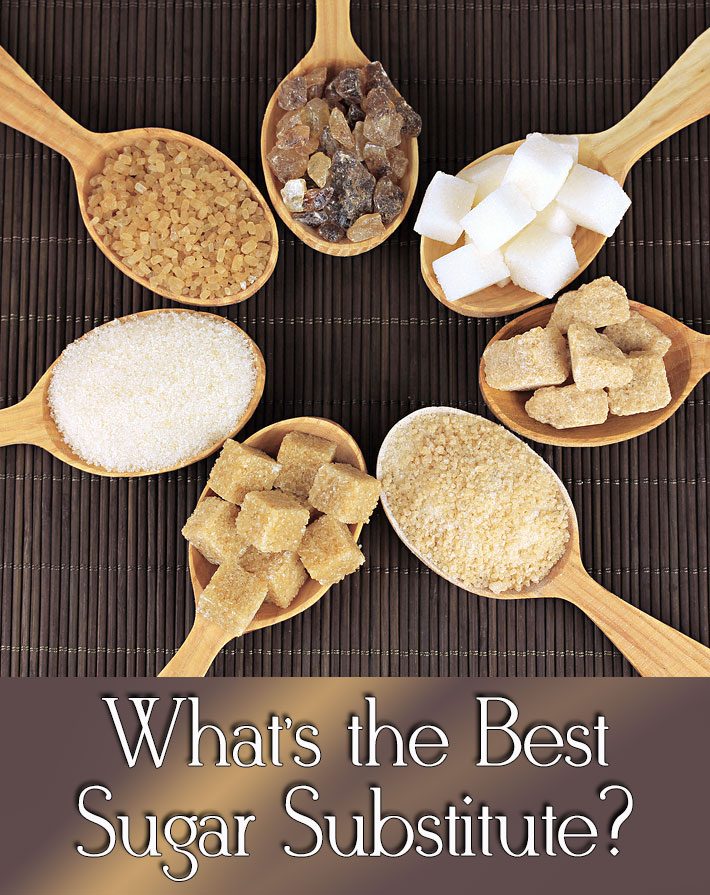
We’re told time and again how refined white sugar is terrible for us. But what if you want a little sweetness in your life? Not even as a staple, but just as an occasional indulgence? What’s the best sugar substitute?
Artificial sweeteners aren’t the answer
Artificial sweeteners are often touted as a way to stay healthy and lose weight. In fact, they are sometimes deliberately hidden in processed foods – often the presence of artificial sweeteners is revealed only on the ingredient list on the back, meaning many consumers miss them.
Unfortunately, artificial sweeteners are simply not good for us. We are taught to believe diet soda is better for us than regular when, in fact, it can even be worse. Drinking diet soda has been associated with increased risk of metabolic syndrome, which is a cluster of symptoms including high blood sugar and high blood pressure which can increase your risk of heart disease and diabetes.
Aspartame
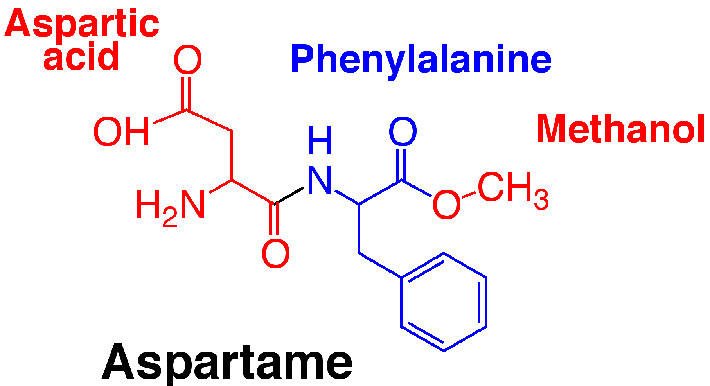
Aspartame, the most common artificial sweetener in current use is known to cause migraines in sensitive individuals and may cause over stimulation of the brain. It is also not usable by people with phenylketonuria and excessive levels can even cause brain damage. It’s almost impossible to find non-premium diet soda that is not sweetened with aspartame, especially if you prefer to avoid caffeine.
Saccharine
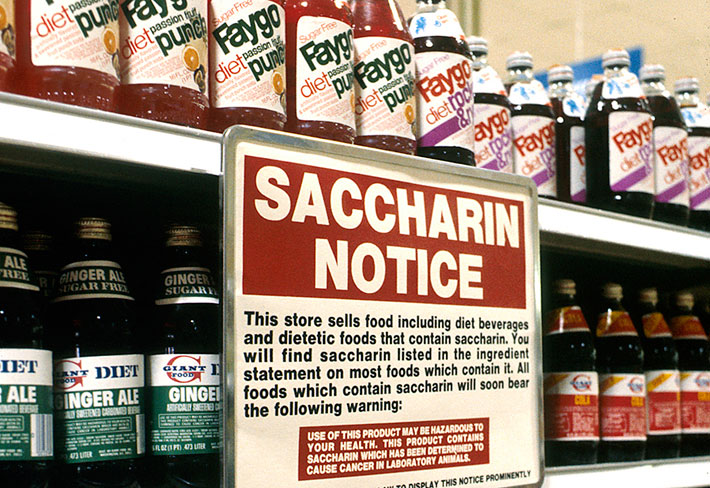
Saccharine (seen in pink packets on restaurant tables as “Sweet n’ Low“) is the oldest artificial sweetener, but is known for its bitter aftertaste. Saccharine causes cancer in lab animals and, while it is not proven to be a carcinogen in humans, is probably something you don’t want to have much of.
Sucralose
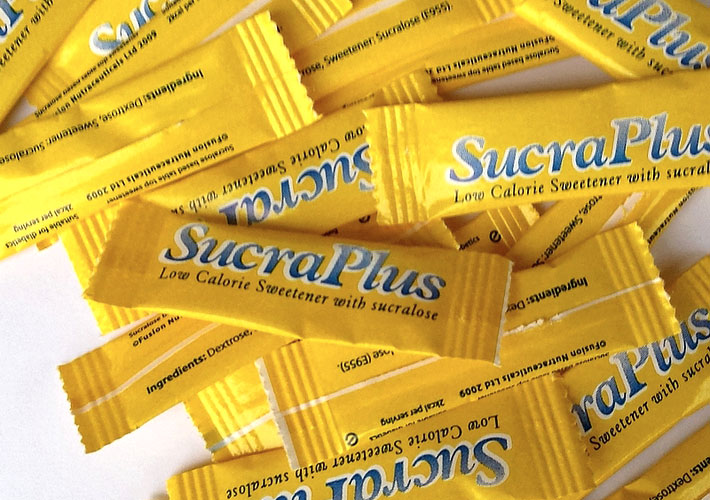
When it comes to artificial sweeteners, sucralose (marketed as yellow “Splenda” packets) may be a safer choice than saccharine, but not by much. It is 600 times sweeter than sugar so you don’t need much to achieve the same sweetness as table sugar. However, according to a 2008 study in the Journal of Toxicology and Environmental Health, sucralose was found to reduce the good gut bacteria in rats by 50% – bacteria that is needed to balance off unfriendly flora and support general health!
Opting for an artificial sweetener just isn’t worth the risk, especially since they’ve been actually linked with causing you to overeat more, which is kind of counter-productive in choosing a ‘diet’ sweetener in the first place!
You might be better off choosing a small amount of real sugar, instead of large amounts of artificial sweetener and their accompanying side effects.
Natural sugar alternatives
What about “all-natural” sweeteners? Is nature better than the science lab?
Stevia – what is stevia?
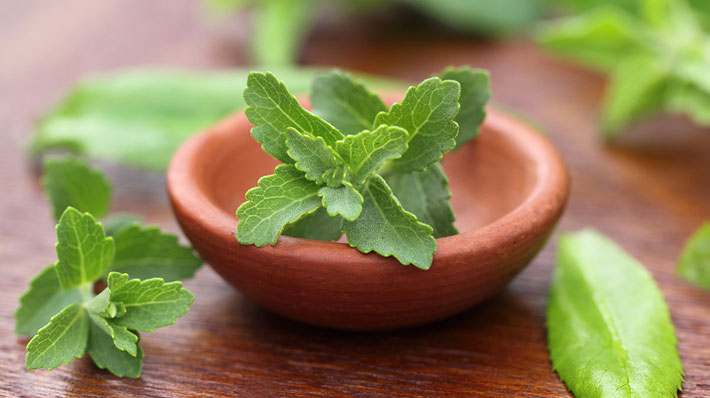
Stevia rebaudiana is a South American plant, and its extract is 200 times sweeter than sugar. It is generally listed as a safe and natural sweetener, and may be beneficial to diabetics since it does not raise blood insulin levels, and may help lower blood pressure in individuals with hypertension. When choosing stevia, you’re better off choosing green or whole leaf stevia and avoiding highly processed white stevia extract (or Truvia).
Be aware, however, that stevia is known to be a migraine trigger – if you are prone to migraines, be careful with dosage and timing the first time you try it. It is also related to ragweed, so it may cause a reaction in those with ragweed allergies.
Honey
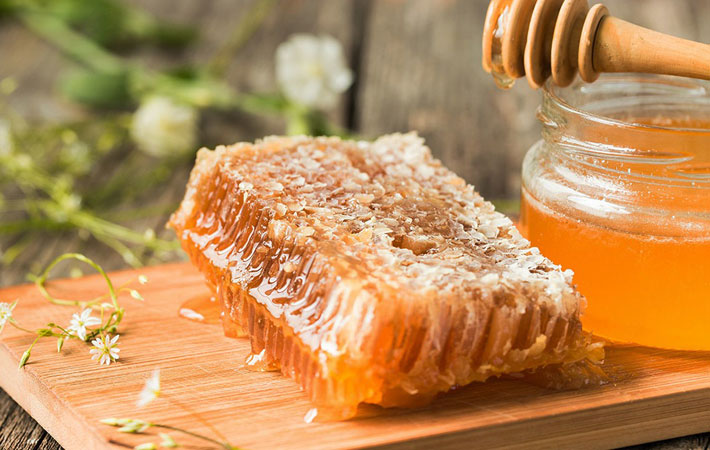
Honey is the oldest sugar substitute of all, but most supermarket honey doesn’t even deserve the name. To get the most nutritional benefit, buy your honey local and, ideally, raw. (Raw, local honey has been shown to have beneficial effects on the immune system and can help with allergies). Honey isn’t just liquid sugar, it’s actually a complex food containing over a hundred different compounds including minerals, amino acid and vitamins.
Honey also makes a wonderful substitute in baking. You can generally substitute equal amounts of honey for sugar, up to a volume of 1 cup. Honey adds moisture though, and baked goods will brown more easily.
Maple syrup
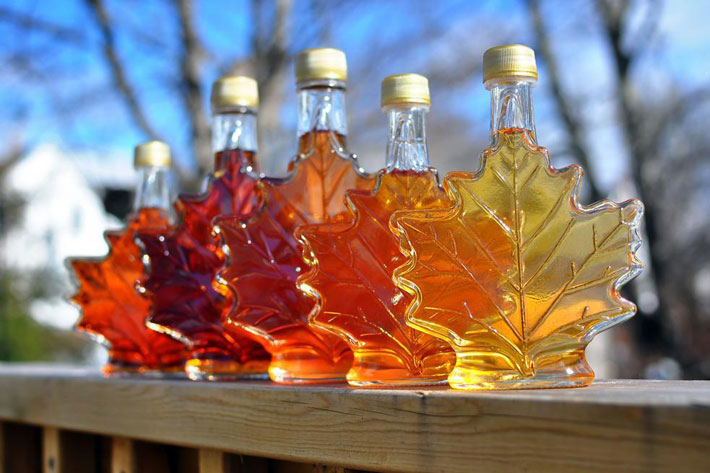
Another favorite natural sweetener is maple syrup – it’s not just for pancakes and waffles. Not only does it have a characteristic flavor, like honey, it is a complex food that contains trace amounts of many different minerals, in particular manganese and zinc. It’s also packed with anti-oxidants and anti-inflammatory compounds which may help fight cancer, bacterial infections and ironically even diabetes. However, despite these compounds, maple syrup is almost entirely sucrose, so it’s still not advised to use it liberally, but it does make for a better sweetener than straight-up table sugar.
Agave nectar – what is agave?
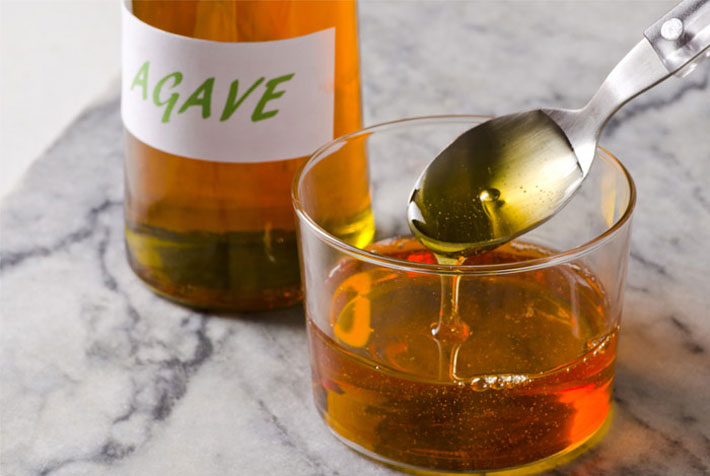
Another ‘natural’ sweetener is agave syrup or nectar, which has become trendy in some quarters particularly as a ‘vegan’ alternative to honey. It’s heavily marketed and gives the impression of being a traditional sweetener (as agave sap or miel de agave might be), but agave nectar sold in stores is a food that was developed in the 1990s and is not the same. However, while it is found in the natural sweetener aisle in the health food store, the process by which it’s made is similar to the process in converting corn starch to high-fructose corn syrup (HFCS).
Agave nectar is also very high in fructose at – least 70% fructose or higher, depending on the manufacturer, whereas high fructose corn syrup is typically 55% fructose. This high level of refined fructose won’t spike your blood glucose, but it may deplete your body’s minerals stores, inflame your liver, and harden your arteries. Also, fructose isn’t digested in your intestines, but rather in the liver. It gets converted to triglycerides or stored as body fat, and thus contributes to insulin resistance and obesity.
The best sugar substitute?
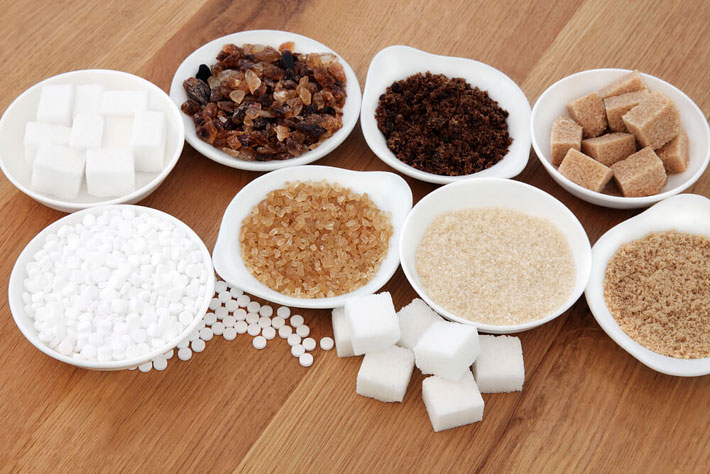
In short, avoid the artificial and go for the natural raw honey is a personal favorite especially since I’ve found it does help with seasonal allergies. Artificial sweeteners do nothing but make you sick and add more chemicals to your diet, but the natural variety will help you stay healthy and happy and taste better to boot. Keep in mind though that sweeteners should be considered treats and not staples. If you’re fighting sugar cravings, grab a piece of fruit as a first line of defense – berries, apples and slightly under-ripe bananas can give you a sweet taste without spiking your blood glucose.

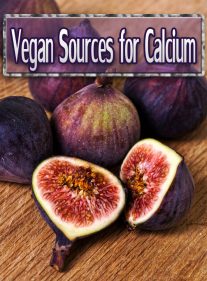
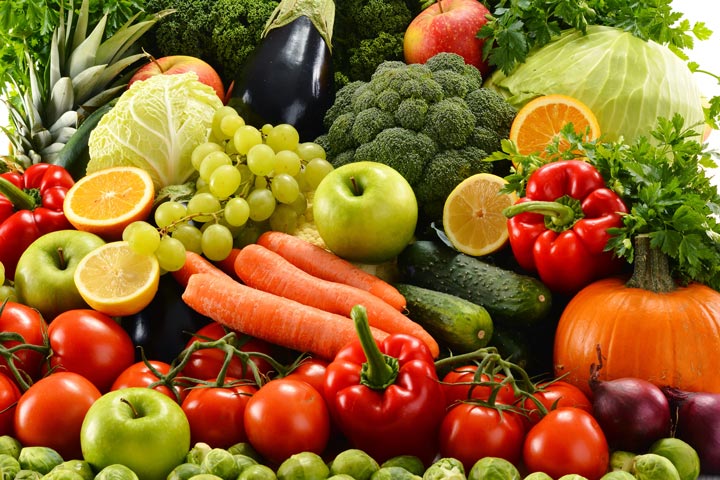

Leave a Reply